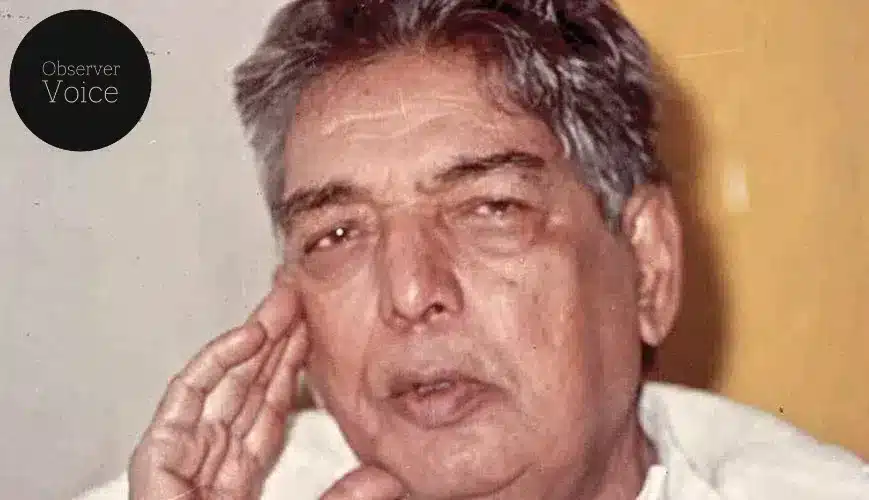Kaifi Azmi: Echoes of Poetry, Songs, and Social Justice

Kaifi Azmi (14 January 1919 – 10 May 2002) was an Indian Urdu poet. one of the most renowned Indian poets of the 20th century.
Life and Career
Kaifi Azmi was born on 14 January 1919, in Uttar Pradesh, India. His family wanted him to be a cleric, so he attended a seminary. After the Quit India Movement, he gave up formal education and joined the Communist Party of India. He started writing ghazals from a very young age and the first ghazal that he wrote was Itna To Zindagi maein Kisi Ki Khalal Pade.
In 1943, Azmi moved to Mumbai, where he worked as a trade unionist and wrote for Urdu papers, including Qaumi Jung (“People’s War”). His first poetry book, Jhankar, came out that year too. During this time, he was closely associated with the Progressive Writers Association and the Indian People’s Theatre Association. He even appeared in plays with leftists like Balraj Sahni.
Aakhir-e-Shab, Awaara Sajde, Kaifiyaat, Sarmaya, and Nai Gulistan are some of his most famous poems.
Along with poetry, he did movies too. Initially he wrote the lyrics for the 1951 film Buzdil. Then he became a writer for some of the most famous films of the golden era, like Yahudi Ki Beti, Miss Punjab Mail, and Parvin. His written film Heer Ranjha was arguably the biggest hit of his career. In addition to writing and lyricizing, he also acted. He played Naseem’s grandfather in the 1995 movie Naseem. His story was the subject of Raman Kumar’s documentary titled Diksha, released in 2015.
He is best known for the classic songs he wrote, including “Waqt ne kiya kya haseen sitam” (Kaagaj ke Phool, 1959), “Dhire dhire machal” (Anupama, 1966), “Chalte chalte yun hi koi” (Pakeezah, 1971), and “Koi ye kaise bataye” (Arth, 1982).
He died on 10 May 2002, in Mumbai, Maharashtra, India.
Awards and Legacy
He was a prominent figure in the Indian Progressive Writers’ Movement, and his poetry and lyrics dealt with themes of social justice and equality. During his lifetime, Azmi received numerous awards and honors for his work, including:
- Padma Shri: He was awarded the Padma Shri, one of India’s highest civilian awards, in 1974.
- Sahitya Akademi Award: He received the Sahitya Akademi Award, India’s highest literary award, for his collection of Urdu poetry, “Dashdwar Se Aakhir Tak” in 1975.
- Lifetime Achievement Awards: He received Lifetime Achievement Awards from several organizations and institutions, including the Uttar Pradesh Urdu Academy, the Government of Maharashtra, and the Government of Madhya Pradesh.
- Filmfare Awards: Azmi won several Filmfare Awards for his work as a lyricist in Bollywood films.
Azmi’s legacy continues to be celebrated in India and around the world. He was a prominent figure in the Indian Progressive Writers’ Movement, and his poetry and lyrics dealt with themes of social justice and equality. He was also a strong advocate of women’s rights and worked tirelessly to improve the lives of marginalized communities. His work continues to inspire many and is widely read and studied.
Azmi’s poetry and lyrics continue to be widely read and studied, and his legacy continues to influence the literary and artistic communities in India and around the world. His works are considered as a reflection of the society and culture of India, and an expression of the social and political issues of the time.
Observer Voice is the one stop site for National, International news, Sports, Editor’s Choice, Art/culture contents, Quotes and much more. We also cover historical contents. Historical contents includes World History, Indian History, and what happened today. The website also covers Entertainment across the India and World.

